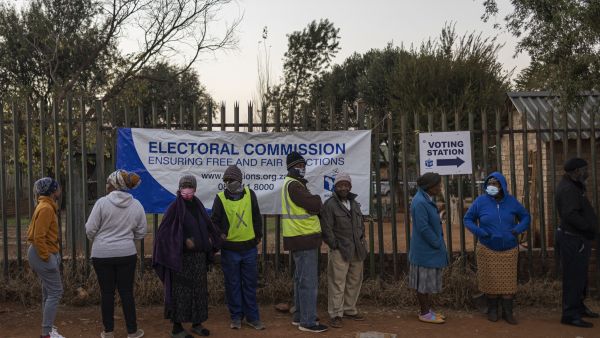ALBAWABA - Thirty years after the advent of post-apartheid democracy, South Africans began voting in what might be considered historic general elections.
There are almost 27 million registered voters in the election, which might be the first time the African National Congress (ANC), which is now in power, loses its absolute majority.
The ANC received 57.5% of the national vote in the most recent elections in 2019, although polls continuously show them with fewer than 50% of the vote nationwide.
This opened the door for South Africa to have its first coalition governance since the “government of national unity" under Mandela’s one-term presidency when the nation was viewed as a ray of hope for the continent and the rest of the world.
Despite the social and demographic change the ANC has proven over the years, since it claimed power in 1994, there is a growing perception among the public that the government no longer represents them as a result of rising unemployment, corruption scandals, and rolling power outages that have lasted up to ten hours a day in recent years.
In a 2022 study conducted by the pan-African research organization Afrobarometer, more than 80% of South Africans said the nation was headed in the wrong way.
Though it may help South Africans and is more pro-business than the ANC, the Democratic Alliance (DA) was deemed unappealing because of the frequent accusations that it supports the interests of white people, an accusation which the party always refused.
John Steenhuisen, a white leader of the Democratic Alliance (DA), succeeded his black predecessor, Mmusi Maimane, who resigned in 2019 citing obstructions to his attempts to win over more black votes.
It was created by the union of the New National Party, which was the renamed National party that had dominated South Africa during apartheid, and the Democratic Party, which originated in opposition to apartheid in the previous white-only parliament.







